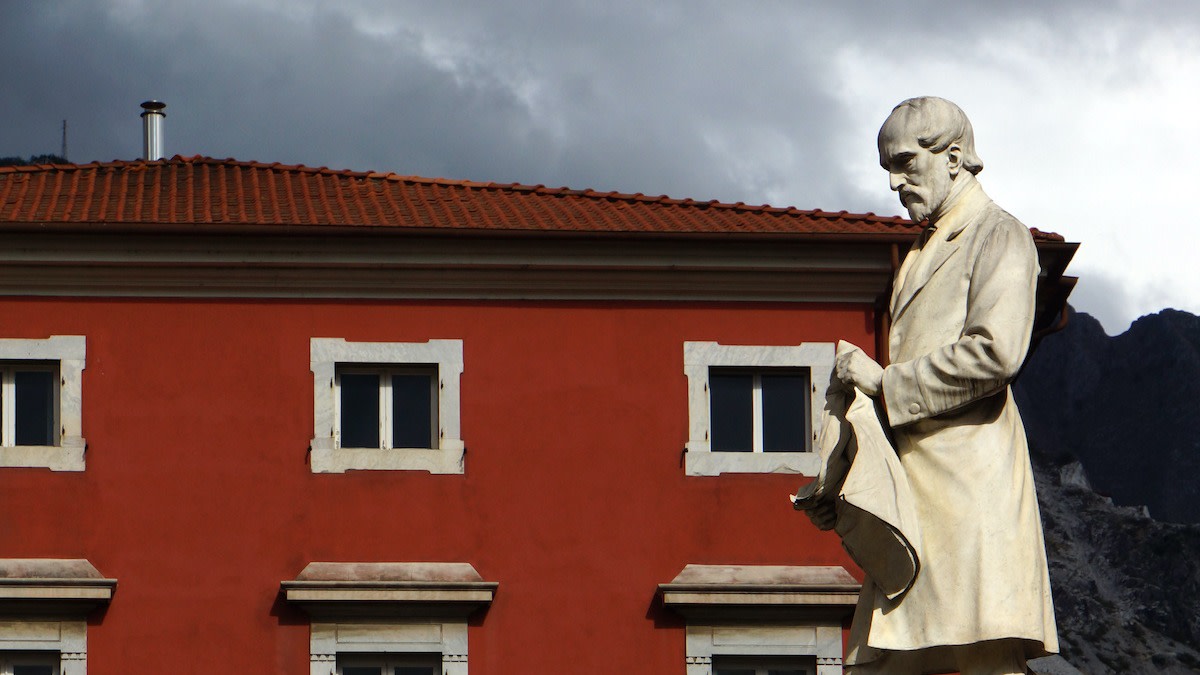Antonio Gramsci: A Brief Biography of the Italian Philosopher
Written by MasterClass
Last updated: Oct 18, 2022 • 4 min read
Philosopher Antonio Gramsci spent his life enmeshed in both Marxist theory and praxis. He hoped to oppose the fascist movement of his day, liberate the working class, and educate the people of Italy on social theory through his prison writings.
Learn From the Best
Who Was Antonio Gramsci?
Antonio Gramsci was a Marxist philosopher and a member and leader of the Italian Communist Party. He was also a prolific writer on the topics of Marxism, the oppressive tendencies of civil society as he saw it, political thought, and the social sciences. He expanded upon or outright critiqued many of the ideas of political theorist Karl Marx while remaining ensconced in the general ideas of his political philosophy and the ideals of the Russian Revolution that Marx inspired.
A Brief Biography of Antonio Gramsci
The life of Italian philosopher Antonio Gramsci was short but illustrious and influential.
- 1. Early years: Gramsci was born in 1891 in the town of Ales on the Italian island of Sardinia, and he attended school in both Ghilarza and Cagliari. After his father, Francesco Gramsci, ended up in prison, the younger Gramsci spent time in and out of school while performing stints of child labor. In his early life, he felt deep disappointment about the treatment of other Sardinian people. He also felt concerned for their well-being, as many lived in conditions of abject poverty.
- 2. Beginnings as a writer: It was at the University of Turin that Gramsci’s left-wing leanings began to solidify and he began his pre-prison writings. He became enamored with the ideas of the philosophers Karl Marx, Friedrich Engels, and the Benedetto Croce, and he went on to join the Italian Socialist Party and help edit its newsletter, Avanti! (or Forward!). He eventually joined forces with several other Italian Marxists—Angelo Tasca, Palmiro Togliatti, and Umberto Terracini—to form a new newspaper called L’Ordine Nuovo (or The New Order). He married Julia Schucht and had two sons—Delio and Giuliano—around the same time.
- 3. Becoming a communist: Gramsci considered political reforms brought about by the political parties in Rome and the activism of factory councils and trade unions to be half measures when it came to liberating the Italian people from capitalist oppression. Gramsci’s writings soon gained the attention of leading members of the Communist International (Comintern), including Vladimir Lenin in Moscow (the Russian communist president declared support for Gramsci in his opposition to the less radical left-wing Italian leader Amadeo Bordiga). Soon after, Gramsci helped found and lead the Partito Comunista d’Italia (Communist Party of Italy) or PCI in Livorno and got elected to Italy’s Chamber of Deputies.
- 4. Imprisonment: Gramsci, alongside other members of the opposition, wound up in jail soon after the rise of Benito Mussolini and the Italian fascists in the 1920s. During his almost decade in prison, Gramsci wrote more than three thousand pages on a host of subjects related to Marxism, politics, history, and culture. These were later published as Quaderni del Carcere (or The Prison Notebooks). He was eventually moved from a prison in Turi—near Bari in Southern Italy—to a medical facility in Formia due to an international activist campaign that his sister-in-law, Tatiana, launched.
- 5. Death and later influence: Gramsci died in 1937 at the age of 46 from a litany of ailments that were protracted and exacerbated by his imprisonment. After World War II, his life and work served as an influence to later Marxist political thinkers like Herbert Marcuse, Louis Althusser, and the Italian filmmaker Pier Paolo Pasolini. Fans founded an International Gramsci Society in his name to celebrate his life and thought.
3 Notable Gramscian Ideas
Many adherents to Marxist thought continue to hold Antonio Gramsci’s work in high regard. Here are three prime examples of Gramscian concepts:
- 1. Cultural hegemony: Gramsci believed that culture must shift toward communist goals before replacing the economic system of capitalism. He thought Karl Marx was incorrect in his assumption that economic forces would be the primary cause of a shift away from capitalism toward socialism and communism. In Gramsci’s view, the bourgeois or capitalist class had so entrenched its values in culture—or achieved cultural hegemony—that to supplant those values would appear to be a revolt against common sense for most people.
- 2. A war of position: Alongside the traditional Marxist revolutionary struggle, Gramsci believed leftists should work to fight to create a new set of values and beliefs in culture as a whole, which he deemed a war of position for cultural hegemony. He believed it was paramount to show a new belief structure about the world, its class system, and politics in general. Once this was achieved, he believed socialism could be implemented as a matter of course.
- 3. Marx meets Machiavelli: Gramsci drew as much on his Italian forebear—the political philosopher Niccolò Machiavelli—as he did on Marx for his thoughts on how to achieve political power. He believed the working class—with the Communist Party as their emissaries—should not just rely on the ostensible inevitability of their victory, as predicted by Marx. Instead, they should behave as the Modern Prince—a reference to Machiavelli’s famous work on political manipulation and power-seeking, The Prince—by developing the craftiness, ingenuity, and guile to attack capitalism and promote Marxism effectively.
Ready to Think Deeply?
Learn what it means to think like a philosopher with the MasterClass Annual Membership. Dr. Cornel West, one of the world’s most provocative intellects, will guide you through fundamental questions about what it means to be human and how to best love your community.
